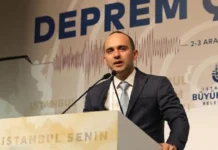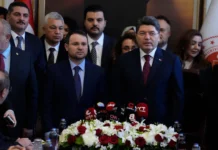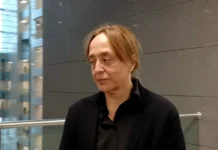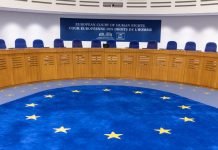A new indictment accusing human rights defender and businessman Osman Kavala and US academic Henri Barkey of spying and attempting to overthrow Turkey’s constitutional order is bogus, politically motivated and bereft of legal credibility, Human Rights Watch and the International Commission of Jurists said in a joint statement yesterday.
The statement described the indictment, which alleges that the two were involved in a coup attempt in Turkey in July 2016, as a repetitive and rambling document that contains a series of wild assertions about the defendants and offers opinions on their activities but presents no evidence on which to ground a criminal prosecution.
An İstanbul court accepted the indictment on October 8 and scheduled the first hearing for December 18. Kavala has been in İstanbul’s Silivri Prison since November 2017, and Barkey lives in the US.
The 64-page indictment, dated September 28, accuses Kavala and Barkey of espionage and attempting through force and violence to overthrow the constitutional order of the Republic of Turkey. According to the human rights watchdogs, the indictment provides no credible evidence linking the two to any criminal activities. Instead, it “recycles unsubstantiated accusations, which previously circulated in the pro-government Turkish media, that Kavala and Barkey were involved in espionage and in the 2016 attempted military coup.”
“The new case against Osman Kavala and Henri Barkey demonstrates the Turkish authorities’ flagrant misuse of the courts for political ends and their fundamental disregard for the basic principles of criminal justice,” said Hugh Williamson, Europe and Central Asia director at Human Rights Watch. “Defying the European Court of Human Rights order to release Kavala has confirmed the Court’s conclusion that Turkey is using detention and prosecution to silence a human rights defender.”
Kavala was arrested in İstanbul on October 18, 2017 on charges of attempting to violently overthrow the government and the constitutional order of Turkey by orchestrating and financing the 2013 Gezi Park protests, which led to his eventual imprisonment.
The European Court of Human Rights (ECtHR) on December 10, 2019 had found a violation upon reviewing Kavala’s application, calling for his immediate release. The judgment that became final on May 11 ruled that the evidence on which Kavala was detained for the Gezi protests and the 2016 coup attempt was insufficient and agreed that Kavala’s detention and the charges against him “pursued an ulterior purpose, namely to silence him as a human rights defender.” On May 12 the Strasbourg court rejected an appeal from the Turkish government with which the court’s ruling became final. Turkey, however, refused to abide by the ruling.
On October 1 the Council of Europe Committee of Ministers issued a second decision calling on Turkey to ensure Kavala’s immediate release, expressing “deep concern that the applicant has still not been released” and announcing that an interim resolution would be issued at the Committee of Ministers’ December 1-3 session if Kavala had not been released by that time. In blatant defiance of the judgment, Turkey refused to release Kavala.
“Turkey is bound by the ruling from European Court to free Kavala immediately, and the ruling covers his detention under the latest case against him,” said Roisin Pillay, director of the ICJ Europe and Central Asia Programme. “The new indictment presents no new grounds to justify his detention, and it is imperative that Turkey ends the persecution campaign against him by releasing him and dropping all charges.”
The indictment of Kavala and Barkey was drafted by İstanbul Deputy Chief Prosecutor Hasan Yılmaz. Shortly after the indictment was accepted by the court, Yılmaz was appointed deputy minister of justice by Turkish President Recep Tayyip Erdoğan. According to the human rights watchdogs, Yılmaz’s promotion to high office days after lending his name to the latest indictment of Kavala sends a strong message that Turkey’s presidency supports the indictment and gives credibility to concerns that it was prepared under the instruction of Turkey’s presidency, with Yılmaz rewarded for complying with executive orders. As deputy justice minister, Yılmaz also became an ex officio member of the 13-person Council of Judges and Prosecutors (HSK), the body responsible for administering the appointment and disciplinary matters of judges and prosecutors.
















[…] through force and violence to overthrow the constitutional order of the Republic of Turkey. According to Human Rights Watch and the International Commission of Jurists, the indictment provides no […]